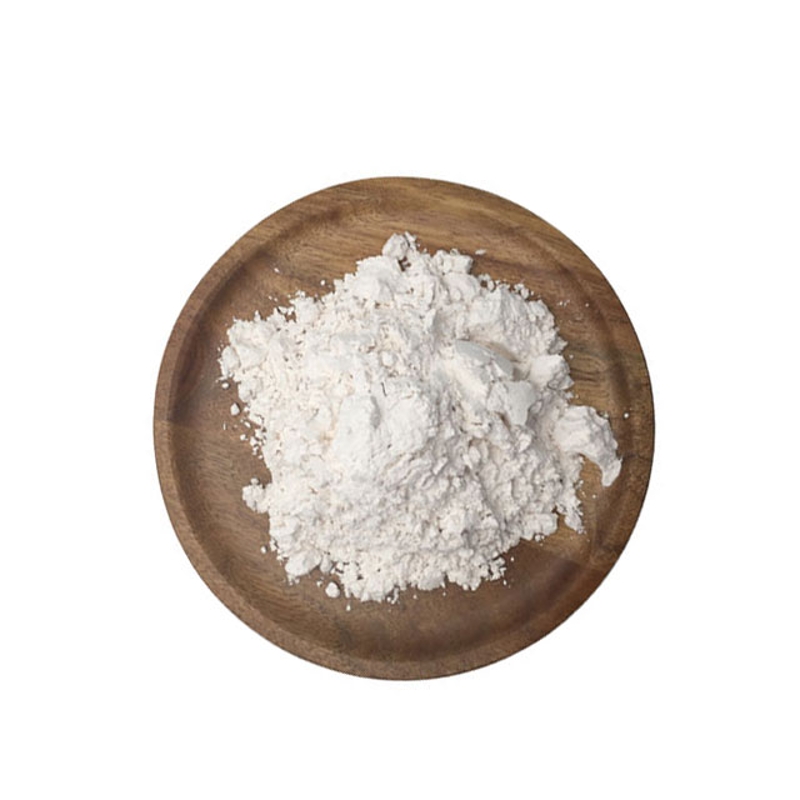-
Categories
-
Pharmaceutical Intermediates
-
Active Pharmaceutical Ingredients
-
Food Additives
- Industrial Coatings
- Agrochemicals
- Dyes and Pigments
- Surfactant
- Flavors and Fragrances
- Chemical Reagents
- Catalyst and Auxiliary
- Natural Products
- Inorganic Chemistry
-
Organic Chemistry
-
Biochemical Engineering
- Analytical Chemistry
- Cosmetic Ingredient
-
Pharmaceutical Intermediates
Promotion
ECHEMI Mall
Wholesale
Weekly Price
Exhibition
News
-
Trade Service
With the improvement of people's living standards, obesity seems to have become the source of all diseases.
A number of studies have found that obesity can cause abnormal glucose and blood lipid levels in the body, higher blood pressure, and ultimately induce cardiovascular and metabolic diseases such as type 2 diabetes (T2D), hypertension, and coronary heart disease (CAD).
However, studies have also found that about 15-45% of obese people have healthy blood pressure, blood sugar and blood lipids.
This does not seem to be caused by survivor bias, but what is the reason why these obese people can stay healthy? We still know very little.
Recently, researchers from the Icahn School of Medicine at Mount Sinai in the United States and the University of Copenhagen in Denmark published a study titled Genome-wide discovery of genetic loci that uncouple excess adiposity from its comorbidities in Nature Metabolism, and identified 62 Gene loci associated with elevated body fat levels and lower risk of cardiometabolic diseases, and found that these genes in the loci may play a protective function by regulating the development of fat cells, the distribution of body fat, and inflammation.
https://doi.
org/10.
1038/s42255-021-00346-2 In order to explore the secrets of keeping healthy for some obese people, the researchers analyzed the body mass index (BMI), waist-to-hip ratio (WHR), high-density lipoprotein cholesterol ( HDL-C), low-density lipoprotein cholesterol (LDL-C), triglycerides (TGs), fasting insulin (FI), fasting glucose (FG), systolic blood pressure (SBP), etc.
11 publicly available whole genomes A paired cross-phenotyping meta-analysis of the association study (GWAS) data identified 62 independent loci, which are significantly associated with high body fat content and lower risk of cardiometabolic diseases.Afterwards, the researchers divided the loci into three main loci clusters based on the characteristics of their association with obesity and cardiometabolism.
After further annotation analysis, it was found that the first locus cluster contained 15 loci, and its alleles responsible for the increase of BMI and BFP (body fat percentage) are usually related to the overall protection of a variety of cardiometabolic traits.
The second main cluster consists of 34 loci, and its BMI/BFP increased allele is associated with higher HDL-C, lower TG, lower FG and T2D risk.
The third main cluster contains 11 loci, and alleles associated with higher BMI are associated with lower risks of FG, SBP, or T2D.
The 62 identified loci are divided into three characteristic clusters.
To further verify the correlation between the loci in these clusters and different obesity and cardiometabolic indicators, the researchers used population data from the British Biobank to conduct their associations.
test.
The results found that the genetically related cardiometabolic indicators of these populations are consistent with the characteristics of association with a single locus in each cluster.
The researchers also found that the association between the loci in the first gene cluster and the protective effects of multiple cardiometabolic properties may be mediated by a more favorable fat distribution.
For example, these loci lead to lower WHR and body fat percentage.
, And a higher height.
Genetic risk scores and their associations in the British Biobank population In order to gain insight into the underlying biological mechanisms, the researchers analyzed the functions of these loci and found that these 62 loci are rich in genes expressed in adipose tissue , And regulatory variants that affect the expression of adipocyte differentiation genes.
Prioritized genes in each locus play a key role in regulating fat distribution (FAM13A, IRS1, and PPARG) and fat cell function (ALDH2, CCDC92, DNAH10, ESR1, FAM13A, MTOR, PIK3R1, and VEGFB).
In addition to prioritizing genes in 62 loci, these genes may also participate in the regulation of insulin-glucose signaling (ADCY5, ARAP1, CREBBP, FAM13A, MTOR, PEPD, RAC1 and SH2B3), energy expenditure and Fatty acid oxidation (IGF2BP2), white adipose tissue browning (CSK, VEGFA, VEGFB and SLC22A3) and inflammation (SH2B3, DAGLB and ADCY9) and other mechanisms reduce the cardiometabolic risk associated with obesity.
Ruth JF Loos, the corresponding author of the study, said: "Obesity is a complex disease.
Not everyone who is overweight is at the same risk of cardiovascular disease.
Knowing which genes can protect people from diabetes and cardiovascular disease.
The infringement of disease will ultimately help us better diagnose and treat obese patients.
"End Reference: [1]https://
A number of studies have found that obesity can cause abnormal glucose and blood lipid levels in the body, higher blood pressure, and ultimately induce cardiovascular and metabolic diseases such as type 2 diabetes (T2D), hypertension, and coronary heart disease (CAD).
However, studies have also found that about 15-45% of obese people have healthy blood pressure, blood sugar and blood lipids.
This does not seem to be caused by survivor bias, but what is the reason why these obese people can stay healthy? We still know very little.
Recently, researchers from the Icahn School of Medicine at Mount Sinai in the United States and the University of Copenhagen in Denmark published a study titled Genome-wide discovery of genetic loci that uncouple excess adiposity from its comorbidities in Nature Metabolism, and identified 62 Gene loci associated with elevated body fat levels and lower risk of cardiometabolic diseases, and found that these genes in the loci may play a protective function by regulating the development of fat cells, the distribution of body fat, and inflammation.
https://doi.
org/10.
1038/s42255-021-00346-2 In order to explore the secrets of keeping healthy for some obese people, the researchers analyzed the body mass index (BMI), waist-to-hip ratio (WHR), high-density lipoprotein cholesterol ( HDL-C), low-density lipoprotein cholesterol (LDL-C), triglycerides (TGs), fasting insulin (FI), fasting glucose (FG), systolic blood pressure (SBP), etc.
11 publicly available whole genomes A paired cross-phenotyping meta-analysis of the association study (GWAS) data identified 62 independent loci, which are significantly associated with high body fat content and lower risk of cardiometabolic diseases.Afterwards, the researchers divided the loci into three main loci clusters based on the characteristics of their association with obesity and cardiometabolism.
After further annotation analysis, it was found that the first locus cluster contained 15 loci, and its alleles responsible for the increase of BMI and BFP (body fat percentage) are usually related to the overall protection of a variety of cardiometabolic traits.
The second main cluster consists of 34 loci, and its BMI/BFP increased allele is associated with higher HDL-C, lower TG, lower FG and T2D risk.
The third main cluster contains 11 loci, and alleles associated with higher BMI are associated with lower risks of FG, SBP, or T2D.
The 62 identified loci are divided into three characteristic clusters.
To further verify the correlation between the loci in these clusters and different obesity and cardiometabolic indicators, the researchers used population data from the British Biobank to conduct their associations.
test.
The results found that the genetically related cardiometabolic indicators of these populations are consistent with the characteristics of association with a single locus in each cluster.
The researchers also found that the association between the loci in the first gene cluster and the protective effects of multiple cardiometabolic properties may be mediated by a more favorable fat distribution.
For example, these loci lead to lower WHR and body fat percentage.
, And a higher height.
Genetic risk scores and their associations in the British Biobank population In order to gain insight into the underlying biological mechanisms, the researchers analyzed the functions of these loci and found that these 62 loci are rich in genes expressed in adipose tissue , And regulatory variants that affect the expression of adipocyte differentiation genes.
Prioritized genes in each locus play a key role in regulating fat distribution (FAM13A, IRS1, and PPARG) and fat cell function (ALDH2, CCDC92, DNAH10, ESR1, FAM13A, MTOR, PIK3R1, and VEGFB).
In addition to prioritizing genes in 62 loci, these genes may also participate in the regulation of insulin-glucose signaling (ADCY5, ARAP1, CREBBP, FAM13A, MTOR, PEPD, RAC1 and SH2B3), energy expenditure and Fatty acid oxidation (IGF2BP2), white adipose tissue browning (CSK, VEGFA, VEGFB and SLC22A3) and inflammation (SH2B3, DAGLB and ADCY9) and other mechanisms reduce the cardiometabolic risk associated with obesity.
Ruth JF Loos, the corresponding author of the study, said: "Obesity is a complex disease.
Not everyone who is overweight is at the same risk of cardiovascular disease.
Knowing which genes can protect people from diabetes and cardiovascular disease.
The infringement of disease will ultimately help us better diagnose and treat obese patients.
"End Reference: [1]https://







